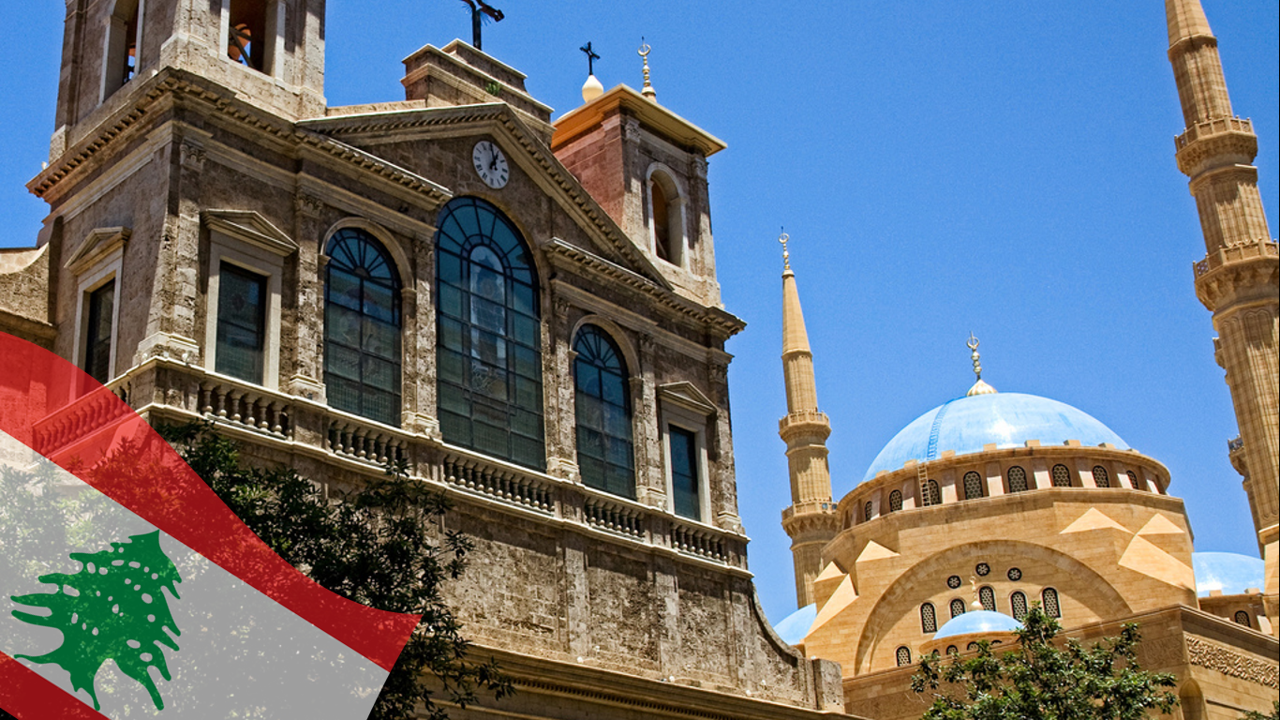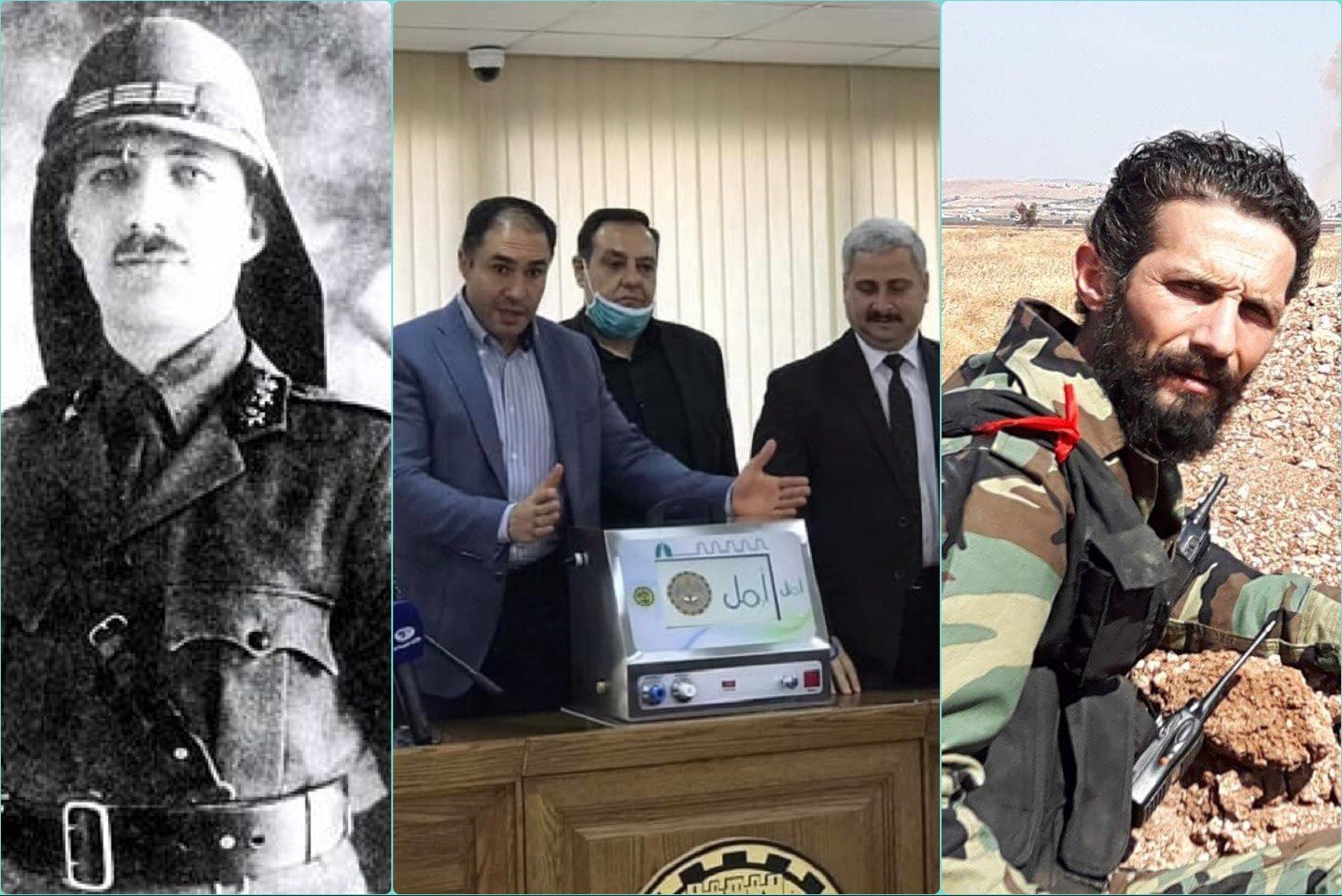This week, on 17 April Syria celebrated its 74th ‘Īd al-Ğalā’, or ‘evacuation day’, the day when the French troops finally left Syria and the state regained its sovereignty. In this sense, by many, it is regarded as the practical day of independence. Today, thought celebrations are limited due to the precautions by the Corona epidemic, it is indeed interesting to assess, where Syria, and in large the Arab world stands as far as independence after such a long time since Arab states started their struggle to rid themselves from colonial oversight.
Results could not have been more mixed this year. Parts of the country are under direct military occupation by foreign powers, some being the same as almost a century ago. The Turks are still heavily present in Idlib and have a hard time to deliver on their promises to the Russians to open safe passage through the M4 highway. Not only their direct presence is pressing, but also the uncertainty they bring with themselves, as groups being supported by Ankara and those against it commit brutal assassinations against each other, devastating the local population. The Americans still active in the East of the country, though they face ever-growing resistance by the Syrian Army and the local population. Nonetheless, their presence and their control over much of the Syrian oil wealth is almost as destructive as their sanctions in light of the recent Corona epidemic. However, this last week saw even more alarming developments in the south, around at-Tanaf being also under American occupation. Not only a major terrorist group was apprehended around Damascus, which was responsible for most of the devastating bomb attacks around the capital, but they also received training and payment by the Americans. At least according to their testimonies. That could be doubted, however, also this week 27 fighters trained and equipped in at-Tanaf specifically for the same purpose defected to the Syrian Army. And one might even add that the liberation of vast territories in recent years came at the price of heavy Russian and Iranian influence over the state.
On the positive side, however, many signs indicate that the Syrian state is not only still functioning, but even give important lessons to the Western world about state responsibility. The way the state and even the Syrian private sector fights the Corona epidemic is in many ways enviable, regardless of the truly alarming conditions now.
Arms and fighters
The Turkish occupation in the north of Syria practically disappeared from the news since the last agreement between Moscow and Ankara. The Turkish forces, however, have a very hard time to control what they came to dominate. In the first weeks, they faced serious problems to live up to their vows for the Russian, as armed groups put up barricades on the M4 highway, which was supposed to be open for joint Russian-Turkish patrols, and for public transportation. The Turkish forces took several attempts to demolish the barricades and open the highway, as they faced several warnings by the Russian forces that there would be consequences.
These Turkish measures caused a major split among the armed brigades, which now seem to spiral out of control. The groups and their leaders started a bloody ring of assassinations against each other, but also against the Turks. The one on 14 April saw the assassination of infamous Abū Bakr Ḥarītān, local an-Nuṣra and Dā‘iš commander in the north of Idlib, while another on 16 April at Ra’s al-‘Ayn killed a number of Turkish soldiers and their mercenaries. At the same time the Syrian Army itself is active as well responding to sporadic attacks from Idlib, and by the suddenly reactivated Dā‘iš cells. On 17 April it was reported that larger groups was decimated in northern Ḥamā, also trying to infiltrate from the Idlib pocket.
The American presence is not any less alarming. Thought as we saw before popular and governmental resistance is growing against the American convoys in the East, and now even the Russians are deploying troops in the area to confront them, this week even more alarming news came from the south. Ever since the US announced its will to fight against Dā‘iš, it exploited this opportunity to put illegal military camps in Syria. Of course, those in the East now concentrate on the oil fields, but there is an equally problematic point in the south, close to the Jordanian-Syrian-Iraqi triple border. That is the base at at-Tanaf, right next to the infamous ar-Rukbān refugee camp, one of the most horrible of the camps. Testimonies confirm that living conditions are insufferable, though the safeguard of those present would be the responsibility of the Americans as occupiers. Those managed to escape account that they are many times used as human shields and they are prevented from returning to areas under Syrian control, though Washington for long uses this matter as a political weapon against Damascus. Reports also claim for long that the camp is used as a shelter, and in its shadows, terrorists are being trained. The attack on 25 July 2018 by Dā‘iš against the provincial capital of as-Suwaydā’ also came from this axis.
This week, however, new evidences were revealed from the malevolent activities in this small southern enclave. Recently Syrian security agencies managed to arrest a major terrorist cell calling itself Sarāyā Qāsiyūn (Qāsiyūn Brigades), which was responsible for most bomb attacks in the capital and around it for the last year or so. According to their testimonies, they were approached by terrorist groups operating in the south, around the Jordanian border, and they received training from mostly Israeli officers. Thought these accounts could be questioned, as these individuals presented their stories in the custody of the Syrian security, this week other events give credit to this claim. In the early hours of 16 April, a group of 27 armed fighters trained by the American forces at at-Tanaf defected to the Syrian Army. They belonged to the Maġāwīr at-Tawra (The Fearsome of the Revolution) armed group, with whom they even had to clash upon trying to escape. They reported the same scenario that they were specifically trained to sabotage the Syrian oil and gas infrastructure by planting bombs, much like the previously mentioned group.
It is clear that the American base at at-Tanaf is a major security challenge for the Syrian state, and that it shall be for some time. Americans and even Israelis admitted that the presence of this base is primarily for the “security of Israel”, far from the official line of being a bulwark for the anti-Dā‘iš operation. However, the recent escape of fighters, and even refugees before, prove that the conditions in the enclave are near breaking point and growing to be unsustainable. With the recent major pullouts in Iraq, where more and more American bases are being handed over to the Iraqi troops, the matter of at-Tanaf is raised once again with some hope, that it will be given up sooner or later.
Fighting Corona
The recent Corona epidemic, which paralyzed most of the world and the global state system as we know it put up a serious challenge even for the most developed countries. In this regard not only the examples of China, or Iran, the latter being one of the most developed in its own region, are serious warning signs, but the cases of Spain, France, and Italy above all else. Therefore one can only imagine that a similar blow in a country like Syria could have devastating effects. If even Western countries suffer to provide a sufficient amount of provisions, what could Syria expect after ten years of war, which demolished its infrastructure, destroyed many of its hospitals, malnutrition already weakened the population and the war still put pressure on the healthcare system?
Thought the signs are grim, Syria managed to present surprising resilience. On 25 March the state confirmed the first four cases, all coming from Lebanon. Even a month later the official number is still at 38 cases. Though this number is probably far from being accurate, as Syria lacks methods to confirm cases and a number of deaths were reported in a result of the virus, and less is known about the conditions under foreign occupation, from where the disease can still spread, the lack of panic is noticeable. In fact, the Syrian government took the matter very seriously and after the first confirmed cases ordered a total curfew, which was surprisingly well kept.
While movement at most of the day and between the provinces was completely shut down, the most surprising thing is that the state started a program of centrally organized bread deliveries reaching every part of the country. This might not be much, but this is a significant step as in many countries citizens were practically left to deal with the results of a complete, or partial lockdown on their own. Surely the curfew will have terrible effects on the Syrian labor market, which already suffered by the war, but what is much more catastrophic now is the still active set of sanctions. Because this prevents the Syrian state from obtaining much needed medical supplies, means for testing, and provisions. And the rise in prices already showed that problems are serious, even without an outbreak.
Nonetheless, Syrian ingenuity already found a way to tackle the problem, even if on a partial level. Known Syrian entrepreneur from Aleppo and Chairman of the Aleppo Industry Chamber Fāris Šihābī supported a program of developing ventilators completely produced in Syria. On 16 April the first machines were presented and handed over to the Ministry of Health.
Even more, while it is confirmed that the US-EU sanctions have destructive effects on the Syrian healthcare system, a major campaign was launched asking for the lift of these sanctions. This might not be much, and given the treatment Iran received, where the outbreak had shocking results, the political benefits start to show. Not only on the level of political talk, as the Emirates started to show surprising tokens of goodwill, but even on more tangible levels. Not long after the famous phone call between Abū Zabī Crown Prince and Syrian President Baššār al-Asad, it was reported that the channel Orient, one of the most vocal mouthpiece of the Syrian opposition and a fiercely sectarian outlet, which was working from Dubai since 2009 will soon be closed. Which in early April has already happened? Officially because of the lack of conventional television following and move towards social media, but it is widely speculated that the real reason is simply because the Emirate state pulled the plug.
All these details show that while the present is grim and the realities are worrisome at best for the Syrian population, the state itself managed to reposition itself and found ways to surpass the challenges ahead. In this light, this year’s celebration also holds a glimmer of hope.
Legacy
Hundred years have passed since the infamous battle of Maysalūn, in which the French troops devastated the Syrian-Arab soldiers fighting for independence, and with relative ease, and today Syria still struggles to secure its land and people. But as a century ago its troops were easily overcome in just one battle, causing another twenty-six years of French rule, today the Syrian Army managed to regain most of its lost territories, it is advancing, and it should be noted that this was achieved on a much larger scale. Against enemies much more numerous. While a hundred years ago the Syrian state institutions were practically nonexistent, today it provides services all over the country, even in some areas out of control. This might be on a very basic level, but it is interesting to see that the Syrian state took its responsibility and provides bread delivery everywhere, so the curfew can be upheld. Unlike in many countries, much more developed.


